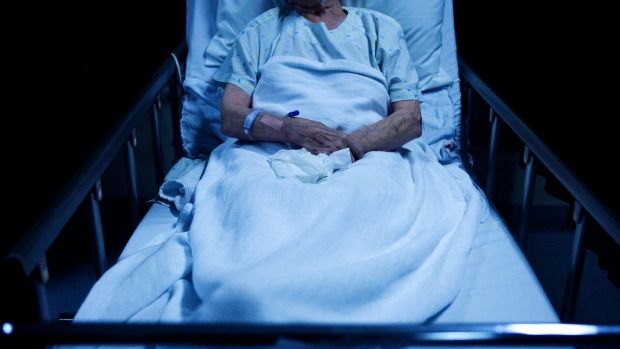
Dangerous: Surgery risks can outweigh benefits. Photo: Nic Walker
More than one in 10 deaths during or after surgery involved flawed care or serious injury caused by the treatment, a national audit has found.
The Australian and New Zealand Audits of Surgical Mortality shows delays in treatment or decisions by surgeons to perform futile surgeries are still the most common problems linked to surgical deaths.
But surgery also appears to be getting a little safer, with the audit, which covers almost every surgery death in Australia, finding fewer faults with the medical care provided to patients than it has in the past.
Audit chair Guy Maddern said of the deaths where there were concerns, about 5 per cent involved serious adverse events that were likely to have contributed to the person’s death.
In about 8 per cent of cases, the audit found some area of care could have been delivered better.
“These are the sorts of deaths where it was a difficult surgery, and instead of going straight to an operation, maybe additional X-rays and imaging should have been pursued, or maybe the skill set of the team that was operating could have been more appropriate,” he said.
“Sometimes, of course, the result would have been exactly the same.”
Professor Maddern said some surgeons, particularly in general surgery, orthopaedics, and, to a lesser extent, neurosurgery, still needed to work on deciding not to proceed with surgeries where the risks outweighed the benefits.
“People are thinking a little bit longer and harder about whether an operation is really going to alter the outcome,” he said. “These are the types of cases where you know before you begin that it is not going to end well.”
However, in some areas with many patients with complex conditions, things were just more likely to go wrong.
The report, which includes data from nearly 18,600 deaths over five years, found in 2013 the decision to operate was the most common reason a death was reviewed.
Overall, delays in treatment, linked to issues such as patients needing to be transferred or surgeons delaying the decision to operate, were still the most common problem, and in about 26 per cent of the deaths no surgery was performed.
Between 2009 and 2013, the report shows a decrease in the proportion of patients who died with serious infection causing sepsis from 12 per cent to 9 per cent, while significant post-operative bleeding decreased from 12 per cent to 11 per cent. Serious adverse events halved from 6 per cent of deaths in 2009 to 3 per cent in 2013.
Every public hospital now participates in the audit, along with all private hospitals in every state except NSW. However, Professor Maddern said he was pleased NSW private hospitals had agreed to participate in future.
Doctors are now provided with regular case studies from the audit, in which de-identified information about the death is provided, so they can learn from any mistakes.
“What we are seeing is an overall decrease in deaths associated with surgical care, which may be due to many things, and we think the audit is helping,” he said. “It’s making people think twice.”
Professor Guy Maddern’s tips on protecting yourself in surgery
- If you are away from a major hospital, get yourself to one. A particular problem, Professor Maddern says, exists when rural patients resist transfers to major hospitals because they don’t want to leave their families.
- Lose weight and don’t smoke.The proportion of deaths where obesity was a factor increased slightly this year. “An operation done on a thin person relative to a fat person can have a completely different outcome,” Professor Maddern says. This is particularly important for older people, who have the most operations.
- Go to a hospital that performs a lot of the type of surgery you are going to have, particularly if it is complex. Remember, practice makes perfect.
